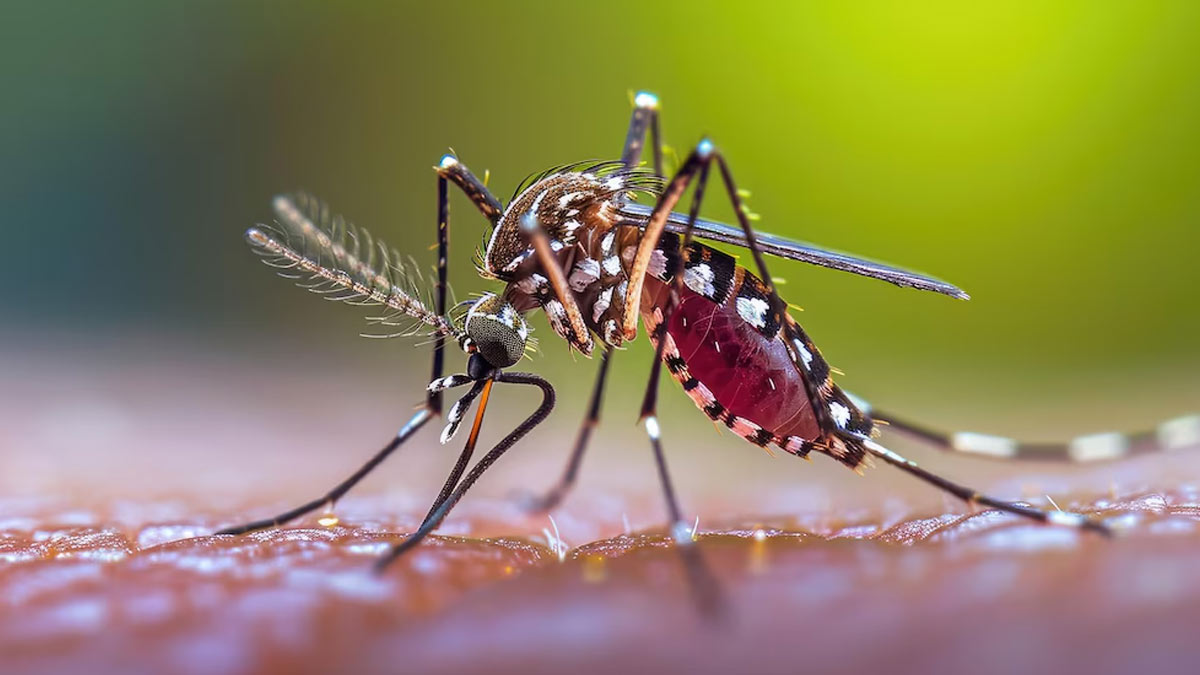
The mosquito borne malaria is a serious disease which can sometimes turn fatal. World Malaria Day is observed on April 25 every year as a global initiative to raise awareness about the disease and find ways to control it.
Table of Content:-
According to the World Health Organization (WHO), there were an estimated 249 million cases of malaria globally in 2022, with 608,000 deaths in 85 countries, highlighting the urgent need for continued efforts to combat this disease.

Causes of Malaria
Malaria is primarily caused when an infected female mosquito, Anopheles, bites a person. Anopheles is the only type of mosquito that can spread malaria. These mosquitoes carry the Plasmodium parasite, which is then transmitted to humans through their bites. There are several species of the Plasmodium parasite that can infect humans, with Plasmodium falciparum being the most deadly.
According to the Harvard Medical School, “ The mosquito becomes infected by biting an infected person and drawing blood that contains the parasite. When that mosquito bites another person, that person becomes infected.”
Symptoms Of Malaria

- Fever
- Chills
- Headache
- Nausea and vomiting
- Diarrhoea
- Abdominal pain
- Muscle or joint pain
- Fatigue
- Rapid breathing
- Rapid heart rate
- Cough
As per studies, some people who have malaria can experience malaria attacks. This attack usually starts with shivering and chills followed by a high fever. Later, the person may sweat and return to normal temperature.
The signs and symptoms of malaria may begin within a few weeks after being bitten by an infected anopheles mosquito. In severe cases, malaria can lead to complications such as organ failure and death, particularly in young children, pregnant women, and individuals with weakened immune systems.
Also read: Understanding The Risk Of Reinfection And Ways To Prevent Malaria
Preventive Tips For Malaria
Prevention of malaria primarily involves avoiding mosquito bites and taking antimalarial medications when necessary. Here are some key preventive measures
1. Mosquito Nets
One can sleep under mosquito nets to prevent mosquito bites during nights. Nights are the time when mosquitoes are most active. Tuck the net properly to ensure that mosquitoes do not enter it through any way.
2. Use Insect Repellent

To safeguard yourself against mosquito bites, you can apply mosquito repellent creams or sprays on the bare parts of your body and clothing. Use insect repellents containing DEET to repel mosquitoes.
3. Screening
Ensure that all the doors and windows of your home are screened properly to prevent mosquitoes from entering your house, especially during the dusk hours, as mosquitoes tend to be active during the time.
4. Wear Long-Sleeved Clothes
If you wear half sleeved clothes or short pants, mosquitoes will gain a major ground to feast on your blood through the exposed parts of the skin. Ensure you wear long sleeved-shirts and pants to reduce your skin exposure and keep mosquito bites at bay.

5. Stay Indoors
It is advisable to stay indoors during the time of peak mosquito activity which is usually in the evening and at nights. If you step out, make sure you are taking all the necessary precautions to prevent yourself from mosquito bites.
Also read: Expert Explains Effects Of Malaria On Different Age Groups
6. Keep Your Surroundings Clean
It is necessary to keep the surroundings clean as mosquitoes tend to assemble and breed in unclean environments. Dispose of garbage, sweep the floors with infectants, if you have plants or garden at home make sure it is well trimmed and maintained to avoid mosquitoes.
7. Consult A Doctor
If you start to experience the symptoms of malaria, immediately rush to your healthcare provider and get proper diagnosis done for appropriate treatment.
Conclusion
World Malaria Day serves as a reminder of the global effort needed to control and eliminate malaria. While progress has been made in reducing the burden of malaria, much more needs to be done to achieve the goal of a malaria-free world. By raising awareness, implementing preventive measures, and ensuring access to prompt and effective treatment, we can work towards a future where malaria is no longer a threat to public health.
Also watch this video
How we keep this article up to date:
We work with experts and keep a close eye on the latest in health and wellness. Whenever there is a new research or helpful information, we update our articles with accurate and useful advice.
Current Version